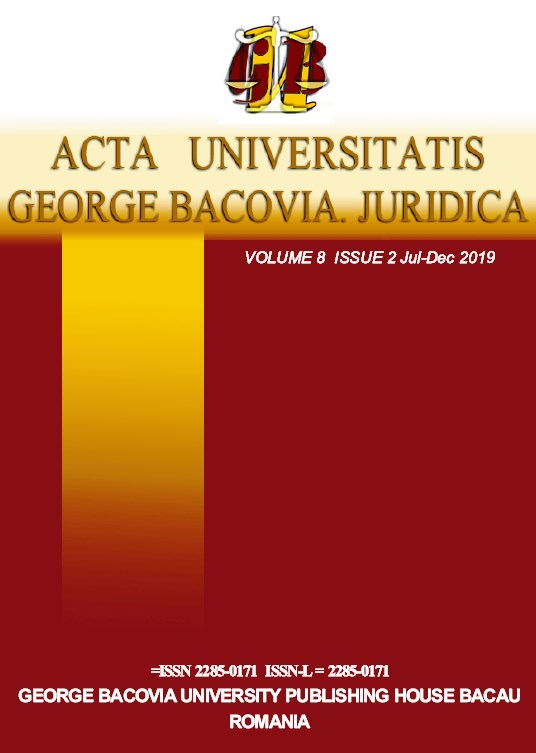Unele considerații privind dreptul penal românesc în perioada regimului comunist. Tranziţia postcomunistă şi reconstrucţia justiției române. Poziţii actuale privind identitatea naţională şi procesul integrării europene. PARTEA a II-a
Some considerations regarding the Romanian criminal law during the period of the communist regime. Post-communist transition and reconstruction justice. Current positions on national identity and the process of European integration. PART II
Author(s): Valentin Stelian Bădescu, Liviu DoneSubject(s): Law, Constitution, Jurisprudence, Law and Transitional Justice
Published by: Editura Universităţii George Bacovia din Bacău România
Keywords: Romanian criminal law; justice; communism; national identity; European integration;
Summary/Abstract: The establishment of Communism in Romania meant not only the violent pursuit of the political will of the "proletariat" but also the constitution of a constitutional architecture to maintain and develop the new social order. The state became the essential instrument of communist political action, having the "historical" mission to transform capitalist society into a communist one, to eliminate the "old ruling class" (capitalist, bourgeois, political, legal and security institutions national or education and culture, etc.). This "revolutionary" action meant the destruction of the Romanian political, economic and cultural elites that had crystallized in the period between the two world wars. On this virgin site, cleansed of "the tares of the bourgeois classes and of her servants," she was preparing to establish and sow a new dominant class, "truly democratic, with country love". The new political class came from workers and peasants, authentic representatives of "the people." In this social reconstruction a special role was played by the new reformed state, renewed in its ideological foundations and whose alveoli were populated with new representatives of the popular population. The reform of the state and the communist society concerned the structure and functions of the state, administrative, judicial, law enforcement, national security (military, information services) and the construction of complicated institutions with economic and social functions. This institutional transformation was oriented both to the structures of the state bodies and to the policy of "cadres", to select and fix new leaders and bureaucrats in the structures of power. The new societal leadership was found in the structure of organizations whose efficiency was determined by the quality of those selected to occupy the various functions of power.
Journal: Acta Universitatis George Bacovia. Juridica
- Issue Year: VIII/2019
- Issue No: 2
- Page Range: 287-348
- Page Count: 62
- Language: English, Romanian

